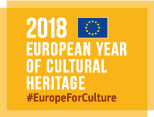TRACES Project | Creative Co-Productions: An Innovative Approach for Heritage Transmission


Challenge: WHY the innovation has been developed? What problem is addressed and why has not been not solved before?
TRACES is a three-year European research project funded in 2016 by the European Commission as part of the Horizon 2020 Research and Innovation Programme and focusing on challenges and opportunities raised when transmitting contentious cultural heritages in contemporary Europe. The Project deploys innovative research practices based on an artistic/ethnographic approach, and involves a multi-disciplinary team that brings together established and emerging scholars, artists, and cultural workers, in order to develop a rigorous, creative investigation on a range of contentious cultural heritages. To achieve this objective, TRACES has initiated a series of art-based action researches (CREATIVE CO-PRODUCTIONS) supported and complemented by theoretical investigations with the aim to eventually identify new directions for cultural institutions and museums to effectively transmit contentious cultural heritage and contribute productively to evolving European identities.
Solution: WHAT the solution is about? HOW it goes beyond the state of the art?
INNOVATIVE METHODOLOGY: * CCPs are based on long-term researches about contentious cultural heritages and their public interfaces. * Cross-disciplinary approach, combining artistic practices and academic research. * CCPs’ artists move from the tradition of Institutional Critique and intend contemporary art as a strategy to enable the usage of sensitive and self-critical approaches within institutions that own or host contentious collections, and foster a public debate. * Experimental participative actions and integrated multi-disciplinary projects set in specific contexts, involving different stakeholders. OBJECTIVE: * To identify/produce innovative research methodologies for protection, re-appropriation and valorisation of European heritages, combining qualitative research with action research, academics with end-users, theorisation with intervention, classical methodologies with ICT. * To involve the local population in strategies of cultural co-production, in order to develop a potent exchange between top-down academic approaches and bottom-up practices, and to enable direct users to actively participate in the process.
End-users and examples of uses: WHO will beneficiate/ is beneficiating from the solution? WHERE and HOW the solution has been adopted? How will impact people or end-users? Add as more as possible examples of market and society uptakes
Scientific community, civil society and local communities, general public, policy makers, museum directors, stakeholders, media
Future possibilities: Future market perspectives when the innovation will be fully available or in use
TRACES aims to provide findings conveying how to acquire the interest of citizens/local communities and engage them in a positive, productive way in the process of reflexive Europeanisation.
Media coverage
Local media, academic cirles, social and digital media (Facebook, Youtube, Cultural Heritage websites)
References for more information (eg. website, social media)
Contacts:
Francesca Lanz (infoTRACES@polimi.it)
Application sectors:
- Historical sites
- Cultural Tangible and intangible landscapes
- Restoration and conservation of CH
- Heritage communities and participatory approach
- Enabling digital technologies for CH
- Intercultural dialogue
Objectives:
- Consumers’ awareness and information, trust building
- Knowledge sharing and education
RRI Dimensions:
- Public Engagement
- Ethics
Communities:
- Heritage at risk
- Shared management of cultural heritage

